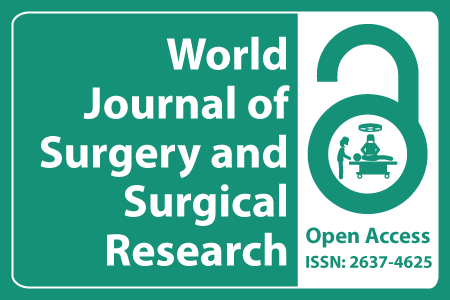
Journal Basic Info
- Impact Factor: 1.989**
- H-Index: 6
- ISSN: 2637-4625
- DOI: 10.25107/2637-4625
Major Scope
- Neurological Surgery
- Breast Surgery
- Surgical Oncology
- Cardiovascular Surgery
- Dental Surgery
- Pediatric Surgery
- Ophthalmology
- Surgery & Surgical Research
Abstract
Citation: World J Surg Surg Res. 2019;2(1):1111.DOI: 10.25107/2637-4625.1111
Program Directors’ and Trainees’ Attitudes towards the Introduction of Multi-Source Feedback as Part of Surgical Residents’ Formative Assessment Process at the University of Calgary: a Qualitative Study
Artan Reso, Evan Jost, Adrian Harvey and Kirsten Dalrymple
Department of General Surgery, University of Calgary, Canada
Department of Surgery, Imperial College London, UK
*Correspondance to: Artan Reso
PDF Full Text Research Article | Open Access
Abstract:
Introduction: Canadian medical education regulators have expressed the need for multifaceted evaluations. Multisource Feedback (MSF) has been proposed to improve assessment of nontechnical domains as these assessments are challenging. This study aimed to assess the attitudes of residency program directors and residents at the University of Calgary regarding implementation of MSF.
Methods: Semi-structured individual and focused group interviews were used to collect data. Six program directors from surgical disciplines at U of C were individually interviewed, and a focus group interview was conducted with 7 surgical residents. These interviews were transcribed and analysed for recurring themes using a template. These themes were grouped on the template and further analysed.
Results: Several themes were identified. These were: identified need for MSF, organizational ability to apply MSF, benefits associated with MSF, barriers to MSF, and suggestions on implementation. Participants agreed that MSF was necessary to improve evaluations and might address assessment shortcomings. They noted that the infrastructure and willingness to implement MSF is currently in place. MSF would allow improved resident insight into their performance and earlier detection of issues. Barriers were difficulty of communicating negative feedback and lack of infrastructure for remediation. A suggestion for implementation was proper preparation of all participants prior to MSF introduction.
Conclusion: Study participants agree that MSF may improve evaluation at the U of C. They felt that the programs were ready to accept and participate in MSF. Concerns remain regarding remediation of negative behaviours. This may be applied to other institutions wishing to implement MSF.
Keywords:
Multisource feedback; Evaluation; Implementation
Cite the Article:
Reso A, Jost E, Harvey A, Dalrymple K. Program Directors’ and Trainees’ Attitudes towards the Introduction of Multi-Source Feedback as Part of Surgical Residents’ Formative Assessment Process at the University of Calgary: a Qualitative Study. World J Surg Surgical Res. 2019; 2: 1111.













